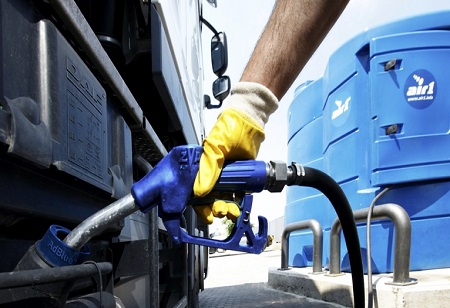More and more car buyers are choosing to purchase diesel-powered vehicles as a result of growing consumer demand for increased fuel efficiency. Since diesel engines provide more torque or "pulling power," they have been the preferred choice for commercial vehicles for a long time. Currently, diesel fuels more than 60% of passenger vehicles on European roadways.
Lean operating conditions are required for diesel engines to avoid soot and other particle production. Oxides of nitrogen are produced as a result of this extra oxygen, which adds to the ambient NO2 emissions. Roma has added a new
Diesel Exhaust Fluid to its assortment of goods and services, which primarily breaks down nitrogen oxide fumes into nitrogen and water. Some of the
Diesel Exhaust Fluid Manufacturers in India include Mahindra Diesel Exhaust Fluid, Tata Diesel Exhaust Fluid, Tata Truck Diesel Exhaust Fluid, Bharat Benz Diesel Exhaust Fluid and others.
Today Automobile manufacturers are making a contribution by reducing the amount and enhancing the quality of vehicle emissions in response to regulatory demands to enhance air quality. SCR and
AdBlue diesel exhaust fluid have long been used in heavy-duty commercial vehicles, and the new Euro 6 pollutant emissions regulation has now extended this technology to passenger cars. Let us look at some of the benefits of using
DEF in the Automotive industry.
Increases engine efficiency
After combustion, DEF removes the harmful pollutants from the engine. This makes it possible for engine makers to adjust them for more power, lower power consumption, and longer intervals between oil changes. For the DEF system, additional cooling or an engine overhaul are not necessary. Use DEF to lengthen the life of your vehicles and save fuel costs by five to seven percent, whether you manage a single truck or a large fleet.
Environmentally friendly
It is safe to store and handle DEF because it is a liquid that is colorless, stable, non-polluting, and non-toxic. Also, the liquid is pure and conforms to all applicable international requirements. Because
of all these qualities, when DEF is used properly, it poses no risk to people, animals, machinery, or the environment.
How much of this liquid is therefore necessary to experience its advantages? You should utilize roughly 2% of the total amount of fuel that is consumed as DEF. Or you'll need about a gallon of diesel exhaust fluid for every fifty gallons of fuel you burn.
Decreased maintenance
Engines with SCR technology have less wear and tear on their vehicles than engines without, which means less maintenance is required. Reduced maintenance also reduces the likelihood of your vehicle breaking down.
Moreover, by using ultra-low sulphur diesel fuel, significant improvements can be made to reduce harmful pollutants. Particle filters and catalytic converters are used to almost completely eliminate emissions of nitrogen oxide and other particulate matter. Air quality is significantly enhanced by the use of ULSD fuel, which enables the use of cars with cutting-edge emission control systems and cleaner diesel engines. Annual emission reductions from 2030's replacement of the current fleet of heavy-duty vehicles will be the same as cleaning up more than 90% of today's trucks and buses of their pollutants.
As emissions from diesel engines are bad for the environment and your health, DEF is simply used as an after-treatment to make machines and cars safe for use. Compliance is the first advantage for car owners.
Your DEF tank must always be refilled with safe amounts each time. This approach raises the expense of owning a machine or car with a diesel engine. The advantage you receive for your health and the environment is priceless, though. Pouring diesel exhaust fluid somewhere else can harm your engine, so it's best to go to a trained agent for assistance.
Diesel engine vehicles require special maintenance to prevent hazardous petrol emissions that can negatively affect the environment and your health. The technology known as DEF ensures that these kinds of engines abide by the standards established by the US EPA.
Less harmful
DEF, which is less damaging to health, enhances air quality, making it simpler for everyone to breathe. Particulate matter and nitrogen oxide aggravate asthma, lower lung function, and cause chronic bronchitis and other respiratory and cardiovascular illnesses. The EPA has calculated that better regulations will save 70 billion US dollars by 2030 by reducing hospital stays, early deaths, and absences from work due to disease.
All brand-new cars come with gauges and/or lights to let you know when the DEF level is low. An emergency light will turn on and the engine speed could drop to just five miles per hour if DEF is not replenished. The fact that diesel exhaust fluid is harmless is also beneficial. As a result, once you have enough on hand, you or the drivers in your fleet can easily replenish DEF as needed.
The use of diesel will not be abandoned anytime soon. We rely on diesel-powered vehicles to transport our goods and ourselves around the world, whether they are trucks, trains, or boats. Even if conventional diesel fuel may not be the best option for the environment in the long run, SCR technology and the development of more affordable biofuels mean that, until we're ready to completely give up internal combustion, we're keeping things reasonably clean.
